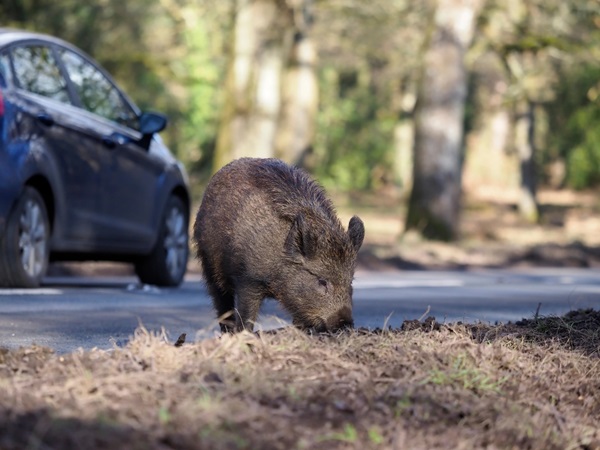 Credit: ACL
Credit: ACL
The Automobile Club of Luxembourg (ACL) has issued a statement urging motorists to beware of collisions with wild game on the country's roads.
In Luxembourg, the hunting season, which runs this year from 19 October 2024 to 31 January 2025, coincides with a significant increase in collisions between vehicles and game; these accidents can have serious consequences for both motorists and animals. The ACL has confirmed a number of key points to raise awareness of the dangers and adopt the right reflexes.
Why are collisions more frequent during the hunting season?
During the hunting season, wild animals such as deer, wild boar and roe deer are more active and move around more to escape from hunters. These movements increase the risk of encountering an animal on the road, especially in rural and wooded areas. Additionally, the hours of dusk and dawn, when visibility is reduced, are particularly conducive to these dangerous encounters.
What are the consequences of a collision with game?
A collision with a wild animal can result in significant material damage to one's vehicle, and even serious injury to the occupants. Animals are often large and unpredictable, and can cause chain accidents if other vehicles are involved. It is vital to understand that these accidents are not just a question of material damage, but also of road safety.
How can one reduce the risks?
1. Slow down and be extra vigilant: in areas marked by signs indicating game crossing, reduce one's speed and pay particular attention to both sides of the road. If possible, use main roads.
2. Use one's dipped headlights: in poor visibility, use one's dipped headlights to see and be seen better. If one comes across an animal, avoid turning on the headlights to avoid dazzling the animal and to allow it to find an escape route.
3. Use the horn: if one comes across game, one can use the horn. The sound helps animals to find their bearings and find an escape route.
4. Avoid sudden manoeuvres: if one sees an animal, avoid sudden steering movements that could cause one to lose control of your vehicle. It is advisable to stop if possible and let the animal pass.
5. Remain vigilant at critical times: be particularly careful at dawn and dusk, when animals are most active.
What to do in the event of a collision
If, despite all your precautions, a collision does occur, here are the steps to take:
1. Hold the steering wheel steady: if one cannot avoid the animal, it is advisable to brake as hard as you can while holding the steering wheel steady. Attempting to avoid the animal is strongly discouraged, as one risks losing control of the vehicle and ending up on the side of the road.
2. Secure the area: switch on one's hazard warning lights and place a warning triangle to warn other drivers. Do not forget to wear the reflective waistcoat provided in the vehicle (and for passengers).
3. Do not approach the animal: an injured animal can be dangerous. Keep one's distance and call the appropriate authorities.
4. Notify emergency services: contact the police to report the accident. They will be able to take the necessary measures to secure the area and manage the injured animal if necessary. Then contact one's insurer. One can also contact ACL to arrange a tow.
5. Document the accident: take photos of the scene, the animal and the damage to one's vehicle. This evidence will be useful for one's insurance claim.
Conclusion
Vigilance and caution are essential to avoid collisions with game, especially during the hunting season. Adopting the right reflexes, paying attention to road signs and reducing one's speed in wooded areas can help reduce the risk of collisions. If possible, it is advisable to use the main roads during this period. In all circumstances, avoid approaching the animal and avoid putting yourself in danger.
The ACL has issued a reminder that its membership includes the risk of collision with game. So if the car driven by a member is damaged in a collision with game on a public road in Luxembourg, the ACL will reimburse up to €500 once a year for repair costs not covered by insurance. The damage must be reported to the ACL as soon as possible so that an agent can explain the procedure to be followed. It is advisable to take photographs of the damage. ACL reserves the right to have the damage assessed by an expert.








